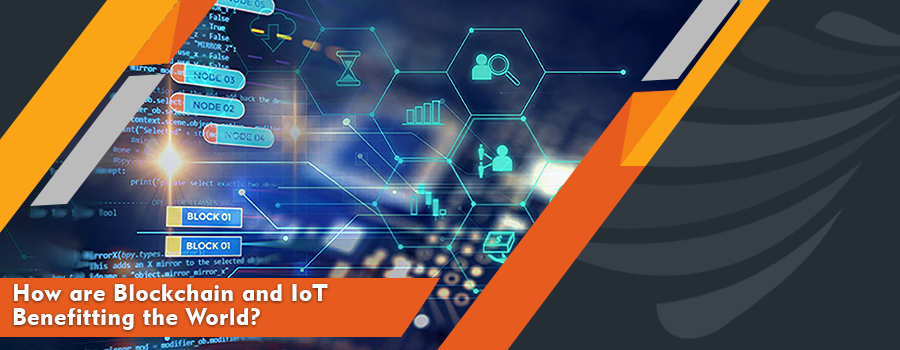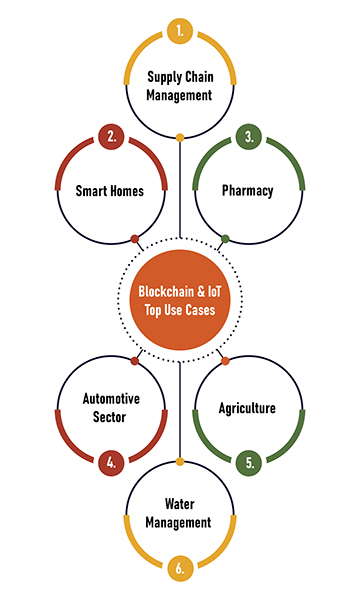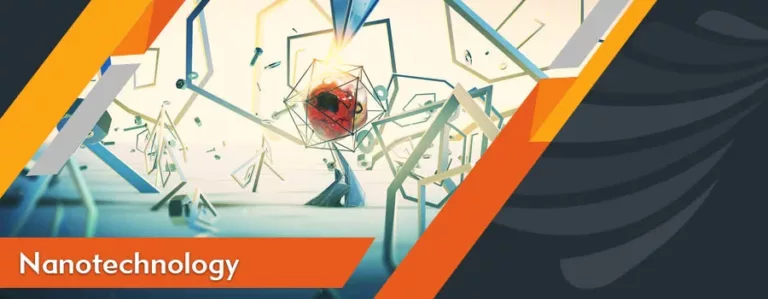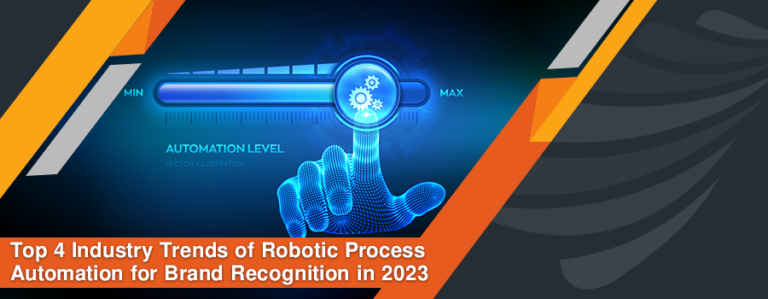Blockchain has significantly impacted the perception we have about technology today. It is a distributed digital ledger, meaning blockchain manages the enormous amount of data that is being consensually synchronized and shared across multiple sites. Due to enhanced security and greater transparency, it has been adopted by a wide range of sectors, including banking, manufacturing, and retail. The report published by the Business Research Company indicates that the blockchain is continuously penetrating new markets and industries. By 2026, the expected growth rate of blockchain will be 63.2%, which makes up the approximate market size of about $71.78 billion. This highlights that the blockchain has a promising future among industries and is less likely to become obsolete in the upcoming years.
Rather than just leveraging an indisputable, shared, and simple ledger for tracking assets and recording transactions, blockchain can transform how the IoT devices work and share information across the complex network of sensors. The following article discusses how blockchain and IoT are changing the world’s digital landscape. However, to a greater extent, the reader will find the information that will help them understand how blockchain can impact the IoT space.
The Fusion of IoT with Blockchain
IoT has greatly impacted our lives, and we barely realize it. IoT devices around us, such as smart watches, smart displays, cameras, etc., collect data about us and make informed decisions accordingly. IoT devices collect information about the equipment or process in industries and let the managers make informed decisions. Despite having insurmountable benefits, security and authentication have always remained a prominent issue for IoT devices. Safety must be standardized for IoT-connected devices to keep the user data safe.
This is where blockchain technology comes into action. Blockchain can easily keep track of the data collected by IoT sensors. It can prevent hackers or cybercriminals from performing malicious activity on the data and trying to breach users’ privacy. Rather than opting for a third-party system, IoT can exchange data and information with the help of a specific blockchain. Blockchain can never be manipulated or changed, and all the chains within the network have unique signatures, making it challenging for hackers to gain control of the data captured by IoT sensors. This prevents the leakage and access of private data.
Blockchain and IoT- Top Use Cases
Blockchain technology can potentially empower IoT devices with better transparency and security. It offers a decentralized and scalable environment as per the requirements of the IoT platforms, applications, and numerous devices. IoT and blockchain have recently paved their way in different sectors. Some of the businesses that are benefitting from this combination are discussed below.
1. Supply Chain Management
The supply chain is the most complex network responsible for delivering the end products to the customers. The network involves various stakeholders, such as raw material providers, manufacturers, brokers, etc. This gives rise to complications in end-to-end visibility in the supply chain and delayed orders.
Companies are now embracing technology with both hands and trying their best to use IoT and blockchain together to track their shipments in real-time and get the shipment status. The combination of blockchain with IoT enhances the traceability and reliability of the supply network. For instance, TrackPro works on the same technological principles and helps supply chain companies to track their fleets in real-time.
Vehicle information, GPS, connected devices, and motion and temperature sensors are widely used in supply chain networks. The sensors store the blockchain’s information and make it available to the stakeholders bound with the smart contracts. This prepares the stakeholders for making timely transactions across different shipments and borders. Undoubtedly, IoT and blockchain are optimizing the supply chain networks and making them secure.
2. Smart Homes
IoT is the superior technology that gave rise to the vision for smart home technologies. Integrating IoT devices with blockchain technology can secure smart devices used in homes. While using the features on the mobile phone application to control smart home appliances, users can also manage the security systems remotely. Additionally, blockchain eliminates the worries related to the conventional centralized data sharing approach through IoT devices, as the system is completely decentralized.
One of the most prominent uses of IoT and blockchain in a smart home is integrating a solution powered by biometric security and blockchain. This smart home solution ensures that all personal and sensitive user data is stored on the blockchain for enhanced security. This data can include facial recognition, voice recognition, biometrics, etc. The immutability trait of the blockchain network ensures that only authorized individuals can access the smart home.
3. Pharmacy
Addressing the issue of counterfeit medicines in the pharmaceutical industry is one of the major concerns which has now been tackled with the combination of IoT and blockchain. The pharmaceutical industries are responsible for manufacturing and distributing the drugs, but they lack tracking the complete lifecycle of drugs. The transparency and traceability features of blockchain can help the companies track the drug shipment to the end-users.
Other examples of IoT and blockchain include tracking legal ownership of prescription medicines and monitoring sensitive healthcare products. The system ensures that all the data on the blockchain has an accurate timestamp and allows information access only to end-users, distributors, manufacturers, and wholesalers in the network.
Blockchain and IoT functionalities can provide various value-based benefits to the pharmaceutical industry. The system also provides benefits related to comprehensive control over user access, preventing the growth of counterfeit drugs, and making the payment process secure and easy.
4. Automotive Sector
The automotive industry has been digitally revolutionized, and it is now embracing new technologies to become highly advanced. For instance, the industry is now using smart IoT-enabled sensors to develop autonomous vehicles. IoT and blockchain in the automotive sector have empowered multiple users for faster and easier exchange of crucial information, which can later be used in making data-driven decisions.
Autonomous cars, automated traffic control, automated fuel payments, and smart parking are the most important trends in the automotive industry, transforming the ways we travel.
One of the best examples of blockchain IoT in the automotive industry is ParkSmart. This smart parking solution simplified the process of locating a vacant parking spot for the drivers. In addition, ParkSmart can also facilitate users with contactless payments and make the transactions secure with blockchain. Another example is of automated license plate recognition solution OLIOS-LPR which helps the patrolling officers identify unauthorized vehicles in no time while using IoT and blockchain for data security. In short, the automotive sector will continue to evolve under the advancements of IoT and blockchain
5. Agriculture
IoT always finds revolutionary and new ways to penetrate industries. In agriculture, it helps the farmers to track the impact of environmental factors on the yield and quality of crops. Apart from catering to the food demand of the increasing population, the agriculture sector also emphasizes minimizing its environmental footprint. At the same time, the industry is adopting innovative ways to garner the customer’s trust by improving transparency throughout the supply chain. This indicates that the IoT blockchain can help enhance the traceability of food products from farms to customers’ homes.
The installed sensors in the farm collect data about the humidity, temperature, moisture level of the soil, etc. The data is stored securely on the blockchain network and can easily be accessed by the farmers, who can now, with the help of this useful insight, manage the farm’s surroundings and ensure food production improvement.
The installation of IoT sensors in farms followed by transmission of the data directly to the blockchain could considerably improve the food production supply chain. Let us look at one of the use cases of blockchain IoT for enhancing the agricultural supply chain.
6. Water Management
Water management is one of the most important aspects of sustainability in smart cities, as the unidentified faulty water fixtures can lead to water waste. However, water management also uses blockchain IoT, and one of the most promising examples is a smart water sensor. The sensor checks the water level and usage and automatically shuts down the water supply if any leak is identified. The system leverages IoT and blockchain services to monitor and store data securely.
Another use of IoT blockchain in water management is detecting water contamination. Currently, drone powered by IoT sensors and blockchain technology is used for collecting the water data and testing it for checking the contamination levels independently. After collecting the water readings, the drone transfers the data to the Ethereum blockchain and distributes the information in real-time. The technology helps the scientist identify the source of contamination in water precisely.
Bottom Line
The bond between IoT and blockchain is magical, and its use cases are not limited to some sectors discussed in this article. Besides the supply chain, automotive and agriculture sectors, blockchain and IoT can also serve prolific advantages to other industries. With the advanced capabilities in terms of flexibility, transparency, and immutability, blockchain has potentially empowered the IoT ecosystem worldwide. Undoubtedly, the fusion of IoT with blockchain is creating a new ecosystem for smarter lives and secure information exchange among IoT-enabled devices.






